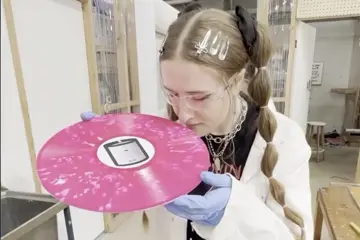The tragic death of Sydney woman Sylvia Choi at last weekend's Stereosonic Festival is another sad point Australian live music history, but if there's any silver lining to be taken away from the incident, it's that it seems to have sparked a concerted effort among industry and punters alike to push for progressive change when it comes to national policy on drug-taking at festivals.
Not only has this week alone seen calls for the implementation of drug-testing facilities at festivals (or any progressive change, really) from the likes of physician and drug expert Dr David Caldicott, rapper Illy and Adriana Buccianti — the mother of Daniel Buccianti, who passed away at Rainbow Serpent festival in 2012 — but also the organisers at Rainbow Serpent itself.
The event's organisers issued a statement today to clarify their position on the introduction of drug-testing options, explaining that Rainbow Serpent "has supported the recent call for a change in how governments and police approach the broad challenges associated with recreational drug use both at music festivals and in the wider society".
Rainbow Serpent's statement calls attention to Adriana Buccianti's change.org petition in favour of policy change, which has so far garnered more than 28,500 signatures on its way to a goal of 35,000.
Don't miss a beat with our FREE daily newsletter
"We fully support Adriana's impassioned plea," Rainbow Serpent director Tim Harvey said in the statement. "What many people don't realise is Daniel passed away from the interaction of a prescribed medication, not an illicit drug. While the purity and composition of illicit substances continue to be a focus for the police and media, we have concerns about any potentially unsafe behaviour including alcohol, prescription medications as well as illicit substances."
However, while Rainbow Serpent concedes that the festival would be "willing" to investigate options such as pill-testing to minimise potential harm for its punters, "it's really legislative change that's preventing us from looking at it", Harvey said.
"We need some progressive and brave politicians who recognise the current approach isn't working and can communicate the benefits of changing strategies to the mainstream Australian population.
"We don't believe current practices such as sniffer dogs and strip searches will solve this complex problem. Drug use has been a reality in societies for thousands of years. Governments around the world are beginning to wake up to this fact and we will ultimately see Australia follow the lead of countries like Portugal and Ireland, who have moved towards treating recreational drug use as a health issue, which incorporates a strong harm-minimisation approach."
Harvey went on to explain that existing drug legislation makes criminals out of otherwise ordinary young Australians, which "can be incredibly harmful" to their future prospects — "All we need to do is look at the extensive list of prominent world leaders, artists and scientists who have openly admitted to past drug use to comprehend the future careers we could be jeopardising through this failed strategy," he said — and that the reality of the matter is that "shutting down music festivals won't stop people from taking drugs".
"Recreational use is occurring every weekend in every city and town around Australia," Harvey said. "At music festivals, we at least have the benefit of exceptionally well-resourced medical crews to look after patrons."
The 19th Rainbow Serpent Festival will be held in Lexton, Victoria, from 22-25 January. See the Festivals tab for more information.















